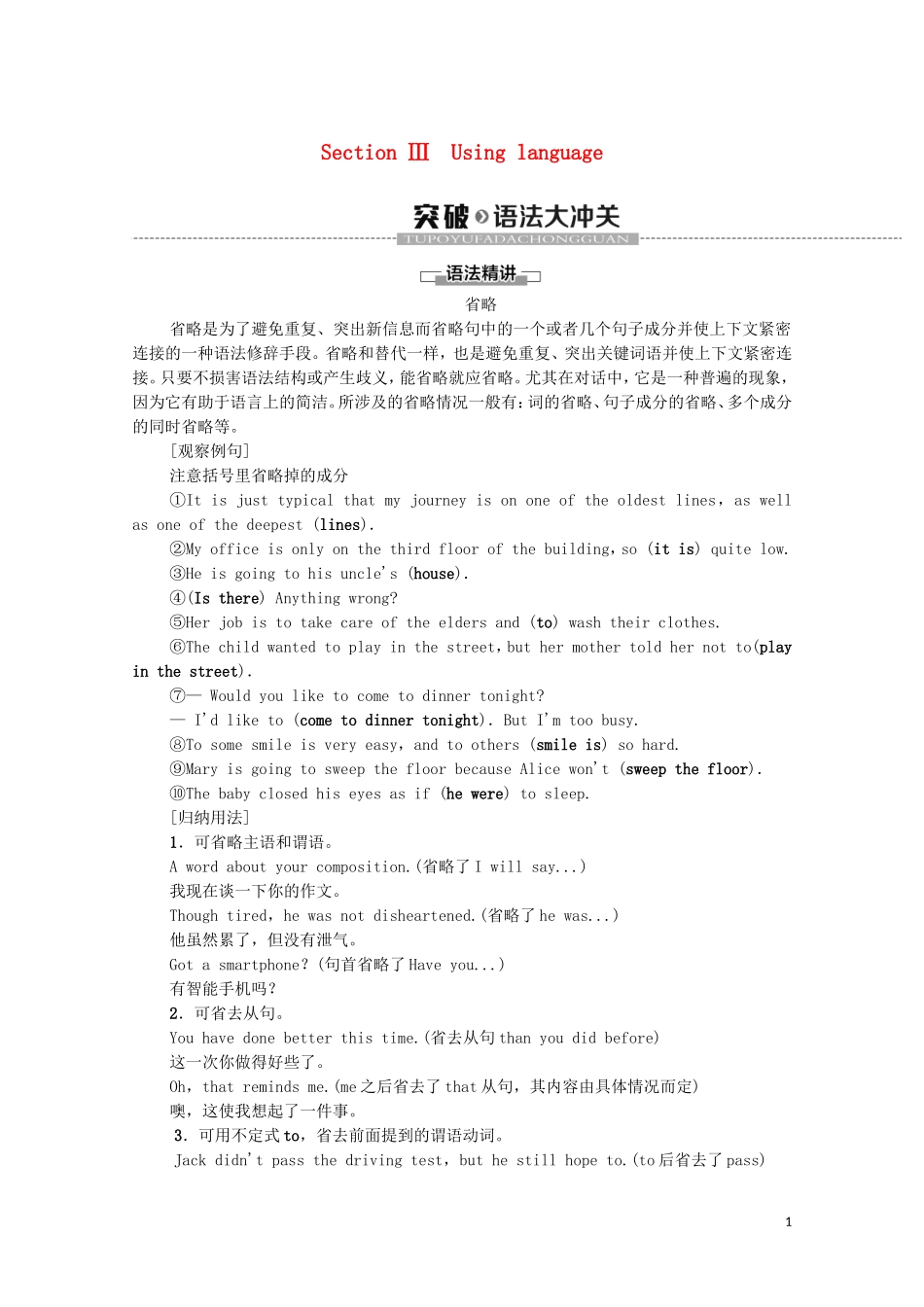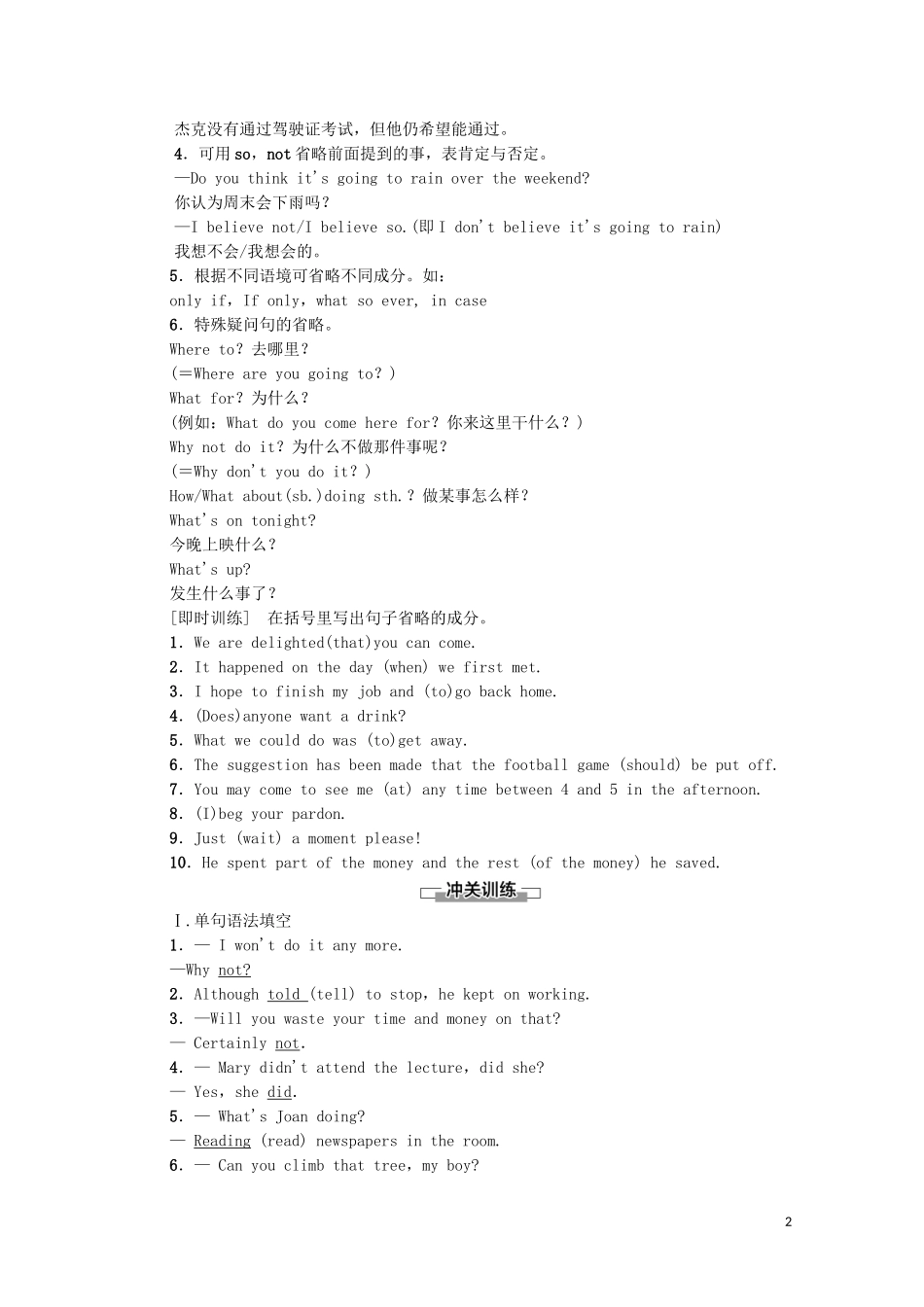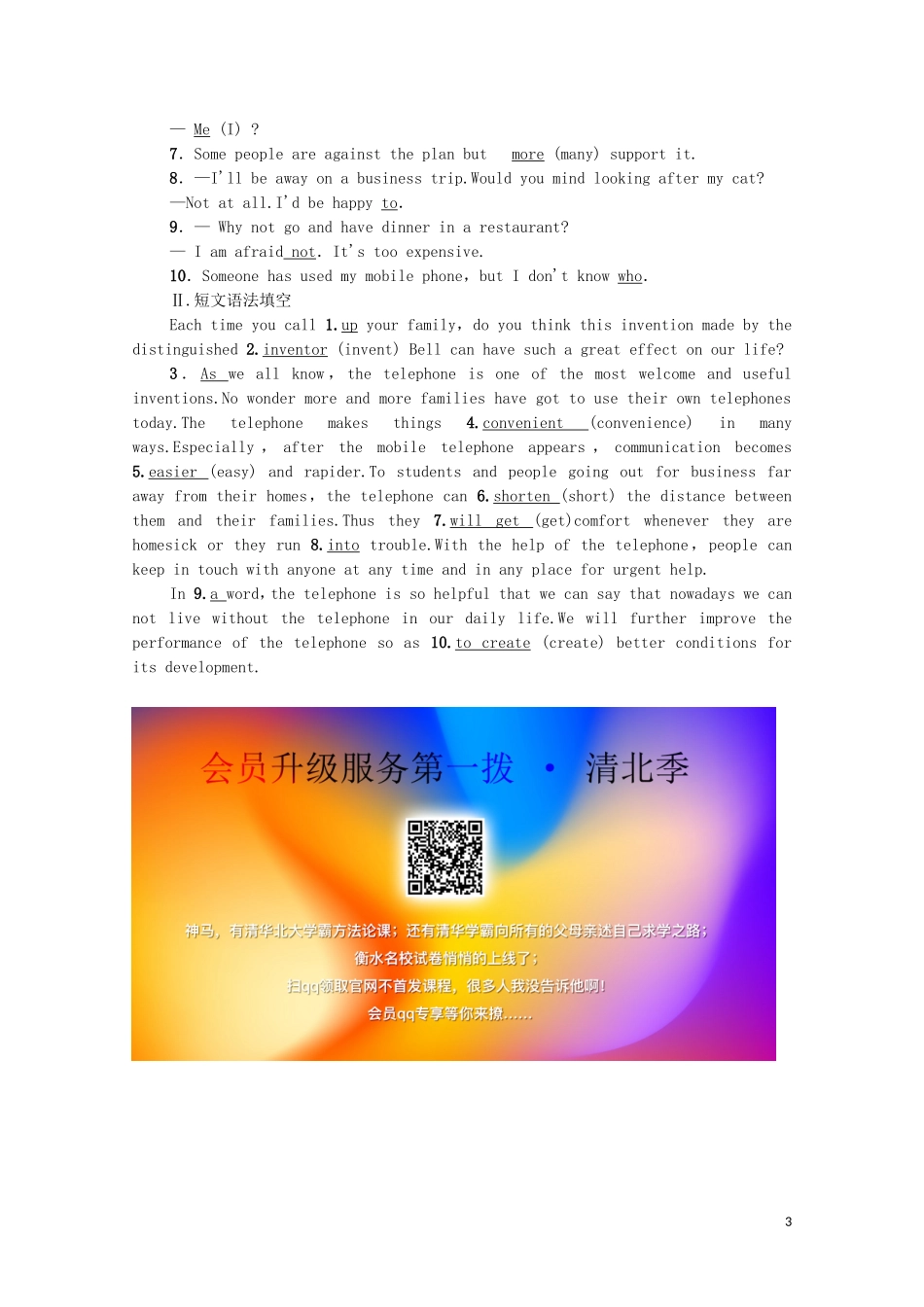Section Ⅲ Using language省略省略是为了避免重复、突出新信息而省略句中的一个或者几个句子成分并使上下文紧密连接的一种语法修辞手段。省略和替代一样,也是避免重复、突出关键词语并使上下文紧密连接。只要不损害语法结构或产生歧义,能省略就应省略。尤其在对话中,它是一种普遍的现象,因为它有助于语言上的简洁。所涉及的省略情况一般有:词的省略、句子成分的省略、多个成分的同时省略等。[观察例句]注意括号里省略掉的成分①It is just typical that my journey is on one of the oldest lines,as well as one of the deepest (lines).②My office is only on the third floor of the building,so (it is) quite low.③He is going to his uncle's (house).④(Is there) Anything wrong?⑤Her job is to take care of the elders and (to) wash their clothes.⑥The child wanted to play in the street,but her mother told her not to(play in the street).⑦— Would you like to come to dinner tonight?— I'd like to (come to dinner tonight).But I'm too busy.⑧To some smile is very easy,and to others (smile is) so hard.⑨Mary is going to sweep the floor because Alice won't (sweep the floor).⑩The baby closed his eyes as if (he were) to sleep.[归纳用法]1.可省略主语和谓语。A word about your composition.(省略了 I will say...)我现在谈一下你的作文。Though tired,he was not disheartened.(省略了 he was...)他虽然累了,但没有泄气。Got a smartphone?(句首省略了 Have you...)有智能手机吗?2.可省去从句。You have done better this time.(省去从句 than you did before)这一次你做得好些了。Oh,that reminds me.(me 之后省去了 that 从句,其内容由具体情况而定)噢,这使我想起了一件事。3.可用不定式 to,省去前面提到的谓语动词。Jack didn't pass the driving test,but he still hope to.(to 后省去了 pass)1杰克没有通过驾驶证考试,但他仍希望能通过。4.可用 so,not 省略前面提到的事,表肯定与否定。—Do you think it's going to rain over the weekend?你认为周末会下雨吗?—I ...


